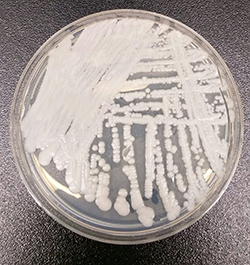Superbug Fungus Candida Auris spreading in New York Hospitals and Nursing Homes
New York State hospitals and especially New York City hospitals and nursing homes are the institutions the most affected in the country by Candida Auris, a dangerous fungal infection resistant to most medications. The disease already killed a patient at Mount Sinai hospital last year and 309 cases have been confirmed in New York and 109 in New Jersey out of a total of 587 for the entire country.
Hospitals that have been contaminated by Candida Auris germs report that it is very difficult to eradicate it in the facility. It takes special cleaning equipment. Sometime tiles have to be ripped of the walls to get rid of the bug.
If a loved one is in a nursing home or at the hospital ask if they had any cases of Candida Auris
Patients who are the most at risk of getting infected are those with a weak immune system such as newborn, elderly and people already sick. The symptoms are fever, ache and fatigue. Nursing home facilities are especially at risk. So far outbreaks have often been kept confidential as hospitals and nursing homes argue that they don’t want to scare people unnecessarily. They also want to avoid being sued for potential hospital negligence , nursing home negligence or medical malpractice.
Discovered first in Japan in 2009, Candid Auris is a fungus that spreads mostly in the healthcare system. It can be found on patients and on surfaces in medical facilities. Any body part including wounds and bloodstream can get infected by this fungus. Patients getting intubated are among the most at risk of contracting the disease. Candid Auris can also live on the skin of a person without infecting the person. However when a person is infected it becomes difficult to cure because this superbug is resistant to antifungal medicine commonly used to treat Candida infections. Some of them but not all of them are sometines resistant to all 3 types of antifungal medicine. The most common symptoms are fever and chills which makes it difficult to immediately identify. The best way to prevent getting infected is to wash hands regularly.
Read more about it on the CDC website
 New York Personal Injury Attorneys Blog
New York Personal Injury Attorneys Blog



